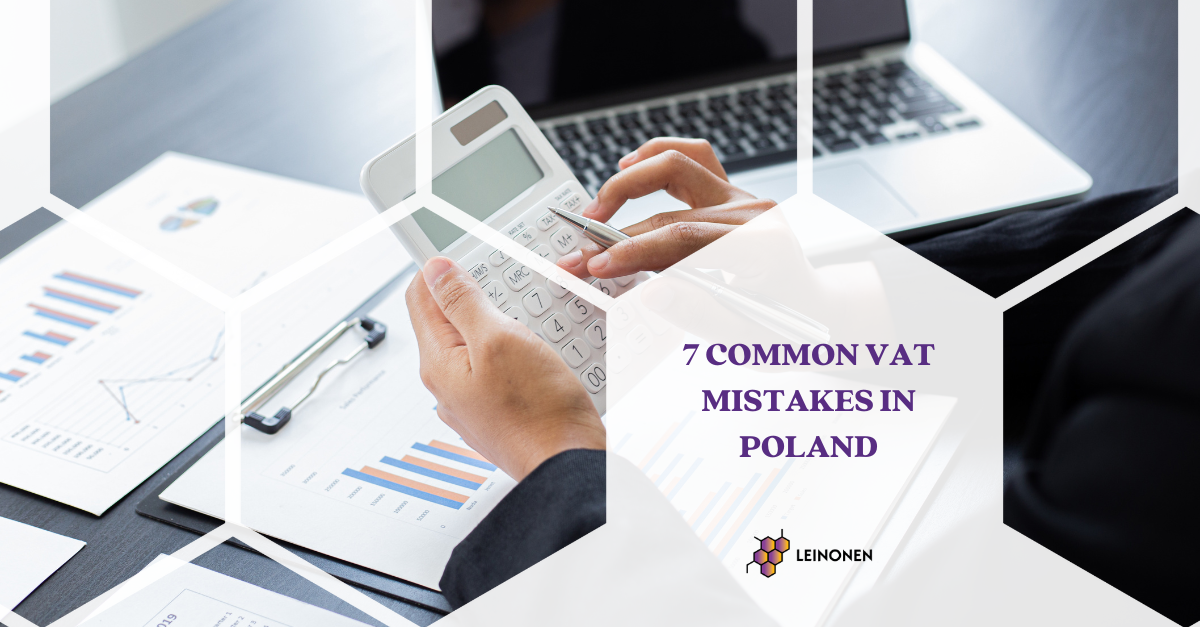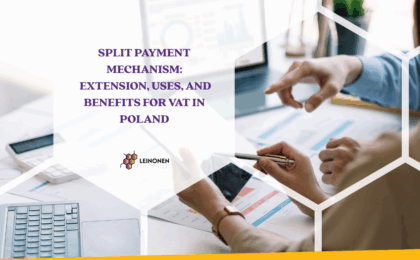Value Added Tax (VAT) is a tax used by countries in the European Union (EU). In Poland, VAT is applied to the supply of goods and services, export and import of goods, and intra-community acquisition and supply of goods.
While the customer pays VAT (the amount is typically added to the price of goods and services), businesses are responsible for correctly filing and paying their VAT return. And with so many goods and services being subject to VAT at varying rates, businesses in Poland must understand their responsibilities to avoid penalties.
What are Poland’s VAT Rates?
The standard VAT rate in Poland is 23%, but three reduced rates are applicable in certain scenarios. These are:
- 8%. This rate is applicable to a wide range of goods and services. These include certain food products, newspapers, animal feed, agricultural supplies and healthcare products. The full list of goods and services to which this rate applies can be found in Annex 3 of the VAT Act.
- 5%. This rate applies to basic foods, hygiene products, products for children, and books. More details on the specifics can be found in Annex 10 of the VAT Act.
- 0%. This rate applies to things like exported goods, intra-European supply of goods, and international transport services.
Full details on the goods and services subject to each VAT rate can be found in Poland’s VAT Act.
What are the Most Common VAT Mistakes in Poland?
- Improper VAT Registration
The threshold for registering for VAT in Poland is 200,000 PLN in a 12-month period. Businesses exceeding this threshold must register for VAT, even if they perform VAT-exempt activities. If your business is close to this, make sure to register for VAT promptly and accurately, and keep your registration details up to date. - Incorrect Invoicing
Common invoicing mistakes include missing out or including the wrong Tax Identification Number (NIP) on invoices. Errors like this can lead to complications in VAT reconciliation. Double check all invoices before sending them out to clients. This should help you avoid future problems that could lead to incorrect reporting, and ultimately penalties. - Documentation and Record Keeping Errors
Missing or incomplete records may hinder VAT compliance and lead to penalties. Make sure to keep organised records of all your business’ transactions, including receipts, invoices and any other relevant documents. Keep hold of both sales dates and document receipt dates, as these are both required for reporting VAT in Poland. - Incorrect VAT Calculations
This can result in over or underpayment, and ultimately adjustments and penalties. One of the most common VAT mistakes made by businesses is applying the wrong rate of VAT to their goods or services.
Another common error is incorrect VAT deductions; input VAT can only be recovered on services and goods used for taxable business activities.
As an example VAT calculation on leasing passenger cars:
Mixed Way (Business and Private)
If the car is used for both business and private purposes (mixed), the taxpayer has the right to deduct 50% of the VAT amount from the leasing instalment or other fees under the contract.
The 50% limit also applies to expenses related to vehicle operation and fuel purchases.
Business Only Method:
If a leased passenger car is used by the entrepreneur exclusively in his business activity, the taxpayer is entitled to full deduction of VAT.
You can deduct VAT not only from leasing instalments, but also from other expenses, including fuel.
The exclusive use of the car within the enterprise must be properly documented (e.g. registering the vehicle as a company vehicle at the tax office).
Human errors in calculations (e.g. rounding issues) are also common, as are errors caused by poor documentation and record keeping.
Check that you are applying the right VAT rates to your products or services. If possible, use reliable accounting software that can perform VAT calculations automatically, eliminating the possibility of human error. Alternatively, regularly review your calculations to catch discrepancies early. - Incorrect Handling of Reverse Charge Transactions
Mistakes when handling reverse charge transactions are common; it is an area of VAT that can be particularly tricky. If you are unsure, update yourself on the latest VAT regulations or consult with a trusted tax professional. - Failing to Meet Deadlines
You may be required to deliver VAT filings through the Standard Audit File for Tax (SAF-T) system each month or each quarter. Either way, late filing can result in costly penalties. Allow yourself plenty of time to prepare your returns and set reminders to make sure you do not miss deadlines. - Lack of Updated Knowledge of VAT Regulations in Poland
VAT rules and regulations sometimes change, and this often leads to unintentional errors by businesses. Therefore, not staying up to date on tax laws and VAT regulations can result in penalties. One of the best ways to stay educated is by consulting a tax professional.
What are the Consequences of Late or Incorrect VAT Payments?
Businesses can be issued hefty fines for late or incorrect VAT payments in Poland. For failing to file a VAT return or late payment of VAT in Poland, a fine of up to 5600 PLN (around 1230 euros) can be issued. For each year of undeclared VAT, a late payment interest rate of 4% to 14,50% may also be applied.2
Avoid VAT Mistakes in Poland With Leinonen
It takes vigilance, keen attention to detail, and a thorough understanding of the most up to date VAT rules to avoid these common VAT mistakes in Poland. If your company is new to operating in the country, this can be overwhelming.
Leinonen have been supporting businesses in Poland for 15 years, offering tailor-made tax, payroll and accounting services. With 70 small and large business clients in Poland alone and a strong presence in many EU countries, we can offer a unique combination of Polish and cross-border expertise.
Make an enquiry today to find out how Leinonen Poland can support your business, helping you avoid common VAT mistakes in Poland.





